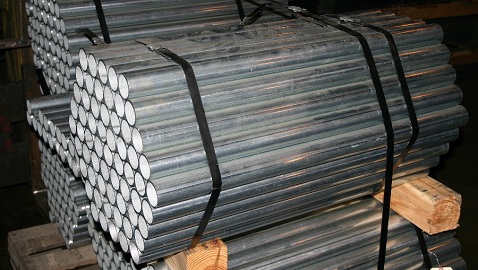Defendants in Negligence Lawsuit Argue That Second Affidavit Includes “New Opinions”
Post Views 3A longshoreman who suffered a serious injury on the job brought legal action against the ship’s owner, operator and charterer. He tried to hold them accountable for the accident, but it was an affidavit filed in response to a motion from the defendants that ultimately got the case dismissed.
The man worked for Gulf Stream Marine, Inc. in Texas. One day, on a ship called the M/V Greta, he was supervising the unloading of steel pipes, which were being lifted in bundles by a crane. When one of the bundles was being lowered onto another, one of the bundles shifted and rolled towards the supervisor. He wasn’t able to avoid the rolling pipes, and the bundle pinned and crushed his left leg against a wall. The leg had to be amputated below the knee.
He sued the M/V Greta’s owner, Anderson Shipping Company, Ltd.; operator, SoCoGEM Sam; and charterer, Oldendorff Carriers GmbH & Company, K.G. He alleged negligence under the Longshore and Harbor Workers’ Compensation Act (LHWCA). His case included a liability expert, a captain who expressed his opinions on the stowage and unloading of pipes and his belief that the plaintiff’s injury was caused by inadequate stowage of the pipes. The defendants moved for summary judgment, arguing that there was no breach of duty owed to the longshoreman.
The man’s response to the motion was an affidavit from the captain. The problem was that it contained opinions that had not been previously expressed. The captain had stated for the first time that the manner of stowage on the M/V Greta was “abnormal and unsafe,” and that it was “almost certain” that unloading the pipes would result in shifting. He further stated that his opinions were based on what would be “generally accepted” by experts in loading and unloading pipes.
The plaintiff argued that his liability expert was simply upholding the initial expert report, not offering new opinions. But the defendants disagreed and moved to strike the affidavit, further arguing that it was untimely. The district court struck the affidavit and granted summary judgment in favor of the defendants, believing that no legal duties had been breached.
On appeal, judges examined the LHWCA’s definitions of duties owed to longshoremen. The first, turnover duty, related to “ordinary care” and essentially being sure that workers are aware of any dangers. The court believed that the lack of dunnage (padding for securing the pipes in bundles), which the plaintiff argued was a hazard, was “open and obvious” to workers, which means that the defendants would not have been liable.
The other duties owed were a duty to use “reasonable care” in preventing injury to longshoremen and a “duty to intervene” should there be dangerous conditions. But the former would require defendants to have had more control over the operations – the plaintiff testified that no one directed the crew on how to stow or unload pipes – while the latter was negated by the fact that the longshoremen knew of the danger and had unloaded the pipes using a standard method.
The plaintiff also argued for contractual duty from the charterer, but the charter agreement was between the owner and a subcharterer. Furthermore, the agreement doesn’t affect duties owed to longshoremen. The appeals court affirmed the grant of summary judgment for the defendants.
Defendants in Negligence Lawsuit Argue That Second Affidavit Includes "New Opinions" by Harrison Barnes



 Top Trends in Human Resources
Top Trends in Human Resources  Want to Be a Great Leader? Learn to Listen
Want to Be a Great Leader? Learn to Listen  10 Ways to Express Your Company Culture
10 Ways to Express Your Company Culture  What Does It Actually Cost to Hire a New Employee?
What Does It Actually Cost to Hire a New Employee?  Telecommuting Doesn’t Work for All Jobs
Telecommuting Doesn’t Work for All Jobs  Top 4 Most Effective Management Styles & How to Use Them
Top 4 Most Effective Management Styles & How to Use Them  What’s Lacking in the Work Place
What’s Lacking in the Work Place  How the HR Department Changed in the Last Ten Years
How the HR Department Changed in the Last Ten Years